Swiss universities gain a steady hand in uncertain times

Luciana Vaccaro will shortly take over the presidency of swissuniversities, the umbrella group of Swiss universities. She has a full in-tray – including what to do about Switzerland’s ongoing exclusion from key European research and education programmes.
Vaccaro says via video chat that she is “humbled” about taking on the swissuniversities presidency, which officially starts in February. A physicist by training, she is also rector of the University of Applied Sciences Western Switzerland (HES-SO), the largest university of this kind in Switzerland.
Vaccaro was born in Switzerland in 1969 while her father worked at the European Organization for Nuclear Research (CERN), located near Geneva. But she spent most of her childhood in Naples, Italy.
Luciana Vaccaro has a master’s degree in physics from the University Federico II in Naples and a PhD in microtechnology from EPFL. Since 2006 she has focused her attention on university management and has sat on several national science and innovation boards. In 2013 she was appointed rector of the HES-SO, aged just 44. This institution has 22,000 students and is spread over seven western Swiss cantons.
In her downtime Vaccaro, who is married and has two daughters, enjoys cooking (especially for friends), sports and travel.
As swissuniversities president, the Swiss and Italian dual citizen will represent the Swiss university community at both the national and international level. Key will be working towards readmission to Horizon Europe, the world’s largest research funding programme, and Erasmus+, which deals with education and exchanges. Negotiations with the European Union on these issues are currently stalled, owing to political disagreements on the shape of Swiss-EU relations.
SWI swissinfo.ch: One of the biggest challenges you are facing in the presidency is the Swiss exclusion from Horizon Europe since 2021 and the loss of access to its €95.5 billion (CHF95 billion) budget. How are you going to address this?
Luciana Vaccaro: The problem is now political, so it’s far above my head. Switzerland and Europe will find a common way one day to solve their political problems. But I cannot influence this. But what I will say – will keep saying – is that full association to Horizon Europe is important: for our [scientific] community and especially for our young researchers and students.
We are very grateful that the Swiss funds that were supposed to go to Brussels [for Horizon Europe] will stay in Switzerland and will be dedicated to research. We need to think how we can replace what [Horizon Europe] is doing at the national level, how we can replace the different funding instruments we cannot access anymore.
At the same time, we are conscious that even if we have bilateral programmes, with the United Kingdom or France, this will not replace multilateralism. Our universities have to benefit from these funds to stay at the level they are, with the hope that we will be reassociated to Horizon Europe as soon as possible. So I would not give up: even if I suspect that the problem won’t be solved under my presidency.
SWI: So Horizon Europe is your biggest priority?
L.V.: This is the biggest in terms of ‘breaking news’. But on the domestic front we have a budget question ahead because we are in the process of discussing the planning [including federal funding for higher education institutions] for 2025-2028 and parliament has to vote on this. This is fundamentally my main duty.
My third priority is science outreach. Our system is based on this trust between academia and society. But I have seen situations where this trust was shaken. We have seen a lot of anti-science movements in the past years, on climate, vaccines and Covid. We cannot influence every branch of society, but we should help society better understand our actions.
One point is transparency of science and the process of science. For instance, explaining that science is also exposed to failure, but this does not mean we have fake data. It means that we are in a process of knowledge in which it happens sometimes that we are wrong. Legitimacy is also an issue. We need to explain the reasons behind some choices. Why do we have this taskforce in Switzerland? Why those experts? Also important is clear and coherent communication.
SWI: The Covid-19 pandemic was very disruptive for universities, with periods of shutdown and distance learning over the past three years. Are Swiss institutions still feeling the effects?
L.V: There were two opposing effects. One was the enormous acceleration in digitalisation. This was not even thinkable in 2019. This led to a very good debate on the limits of digital education and the importance of campus learning. We know our universities will not become distance-learning universities – students and professors need the campus, we need this kind of interaction for the construction and the transition of knowledge.
Digital education has opened a window to the fact that you can learn without having a frame that’s unique in time and place. So we need to think about this for the future in terms of making studies flexible.
SWI: You are the first rector of a University of Applied Sciences (UAS) to be the president of swissuniversities. This is quite a coup for these newer, more industry-oriented Swiss institutions. Have UAS ‘arrived’?
L.V.: This is a little bit about my story. Once, when I was very young, I listened to a conference in Brussels with [Scottish Professor] Anne Glover, scientific counsellor to [then European Commission President] José Manuel Barroso. I remember this perfectly: she was introduced as the first woman to take certain positions throughout her career, and as she said: in the next job I want to be the second!
I am always also the first to do everything. But this is our [higher education] law, which says that we should have a single conference for all our higher education institutions. The fact that a UAS rector has access to this job means that we are fulfilling our law and the politicians’ vision was right.
Switzerland has ten traditional universities, plus two top-ranked federal technology institutes: ETH Zurich and Lausanne-based EPFL. The nine Universities of Applied Sciences are a relatively new concept, dating from the 1990s. They are more practical and industry-oriented: students are mostly from apprenticeship backgrounds and professors have strong practical experience. There are also 20 Universities of Teacher Education.
Swissuniversities was founded in 2012 to unite the three organisations representing these different types of university. After a period of transition, it became operational in 2015, when the Swiss Higher Education Promotion and Coordination Act came into force.
But I can tell you: I will be the president of everybody. In addition, I have a very mixed background, because I was trained at a very ancient university in Naples, I also attended EPFL [the Swiss Federal Institute of Technology Lausanne]. The president has to bring this diversity together. It’s a little bit what I do at HES-SO, because we have a large diversity between the seven cantons, between the six domains of study we cover as an institution.
SWI: What do you think the future holds for universities in Switzerland?
L.V.: When I think about the future, I am always optimistic. And I have reasons to be optimistic in the sense that, as I told you before, we have very large political and public support in Switzerland. I have visited many countries, lived in different places and I can tell you: this is a privilege. However, we are currently living in a very unstable [global] situation… So we have to be able to face this uncertainty. When Covid started, I thought: wow, there isn’t a book on how to manage a university in a pandemic. But at least I’ve learnt how to manage a university in uncertainty, and this is what we are exposed to today.
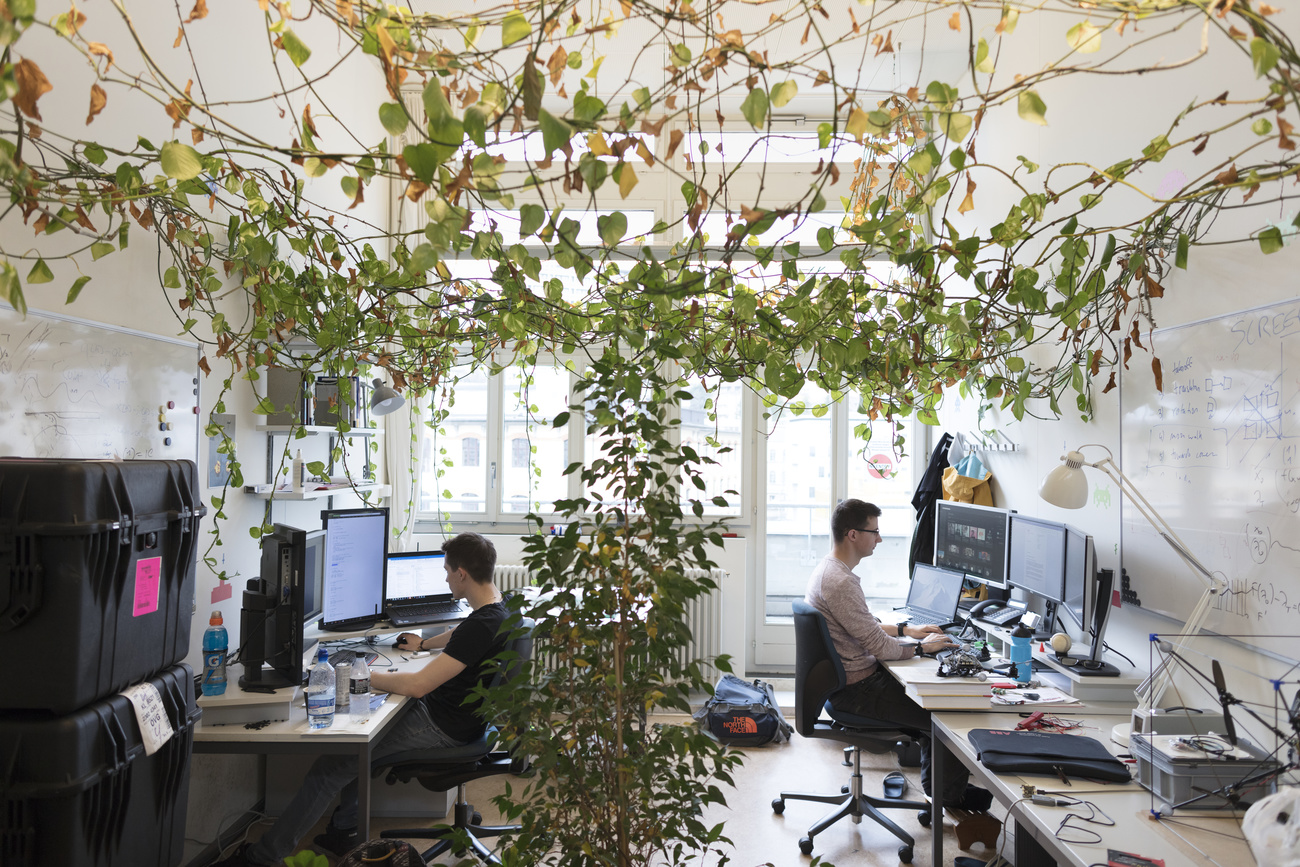
More
What’s on the horizon for Swiss research in Europe?

In compliance with the JTI standards
More: SWI swissinfo.ch certified by the Journalism Trust Initiative










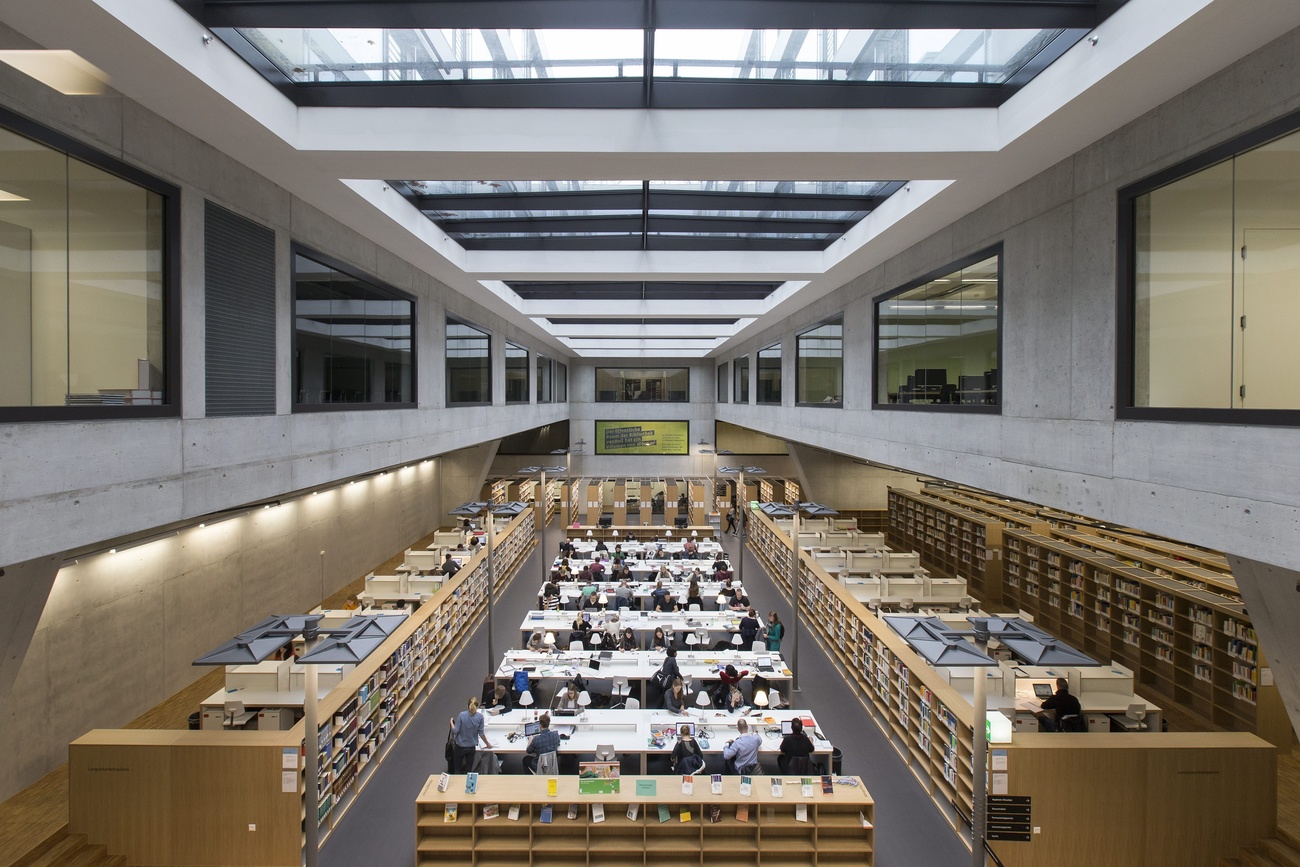

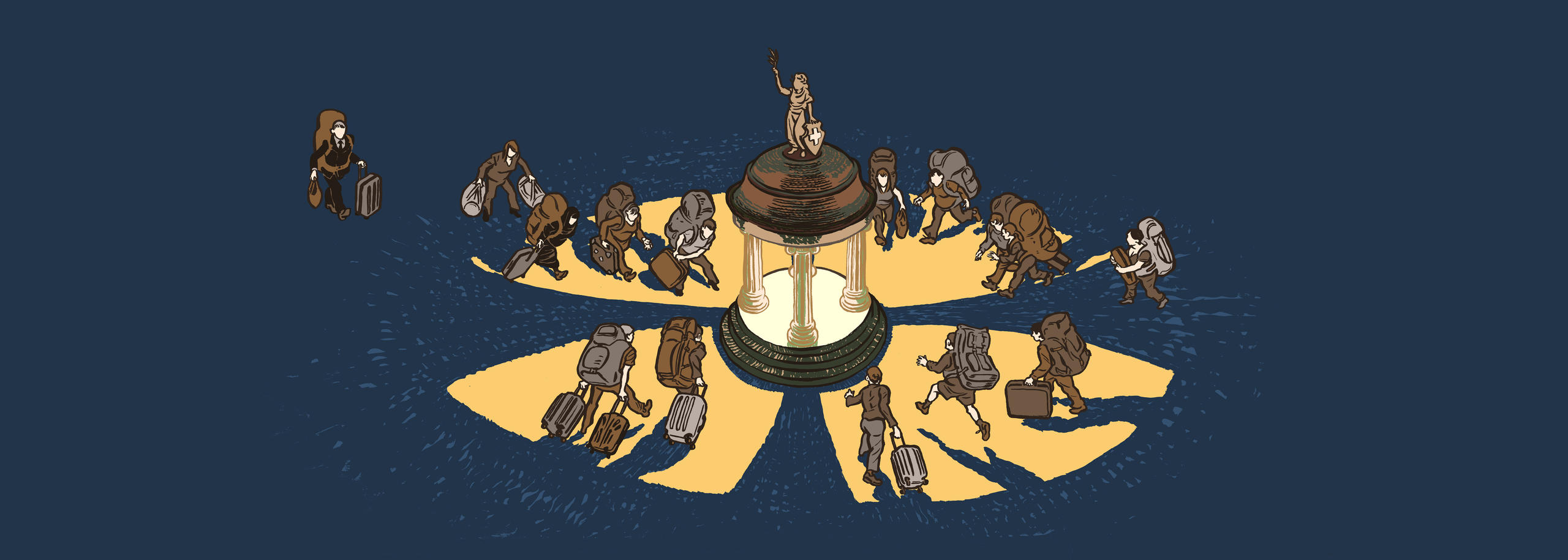
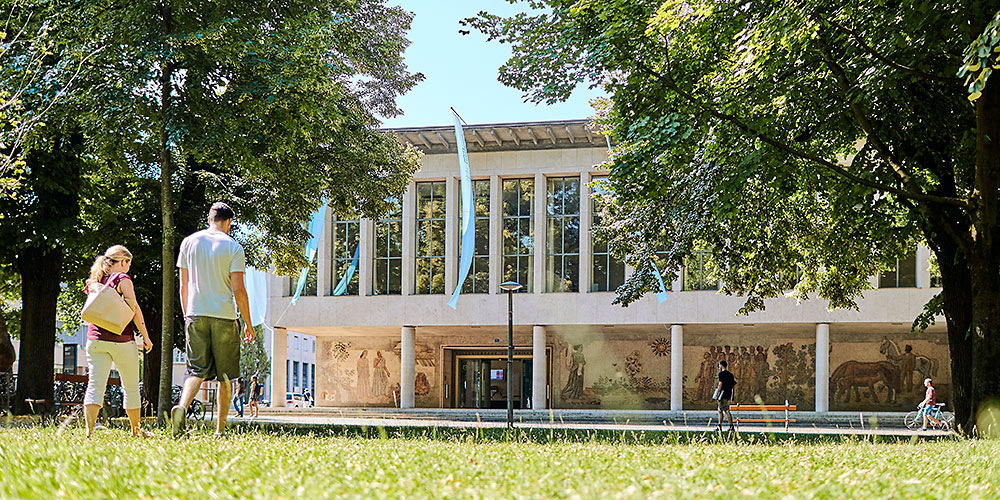
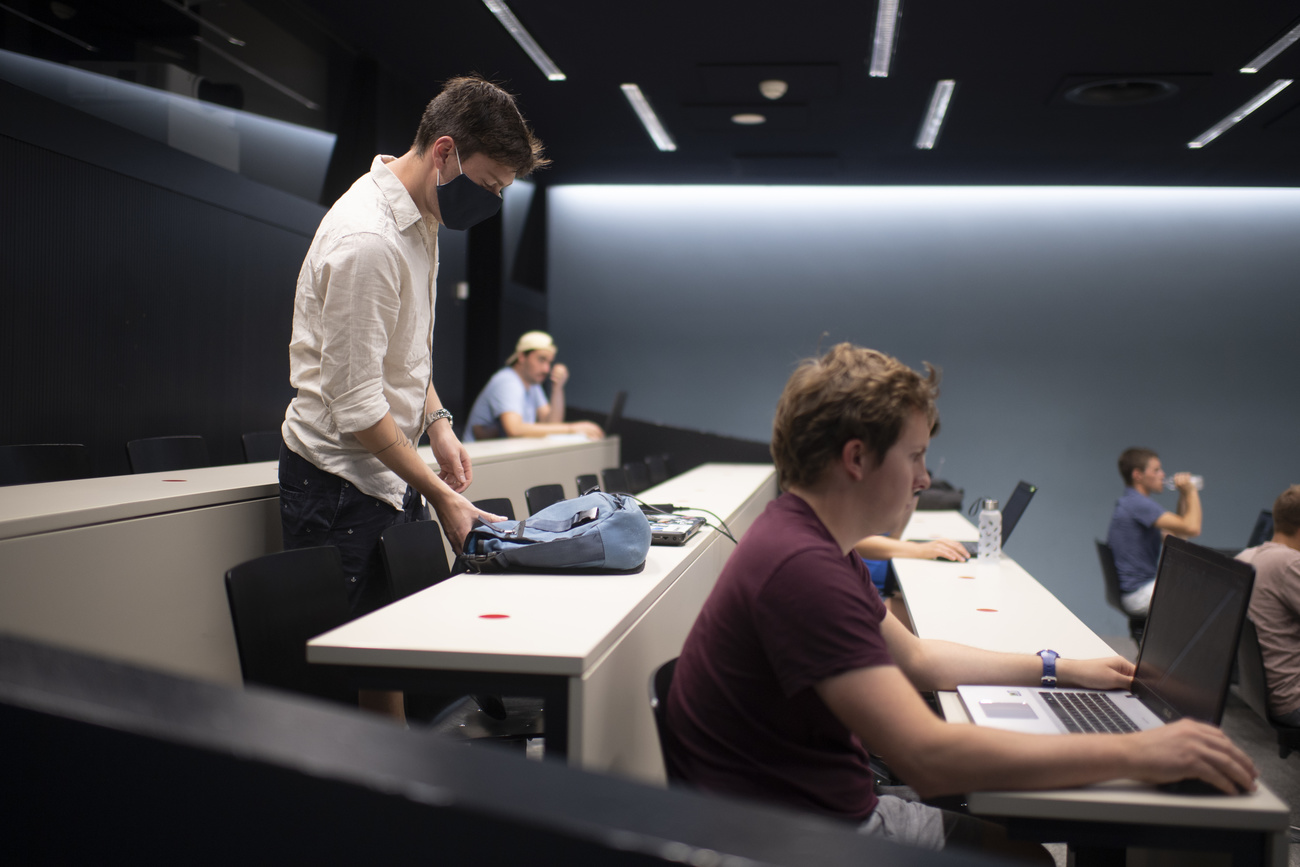
You can find an overview of ongoing debates with our journalists here . Please join us!
If you want to start a conversation about a topic raised in this article or want to report factual errors, email us at english@swissinfo.ch.